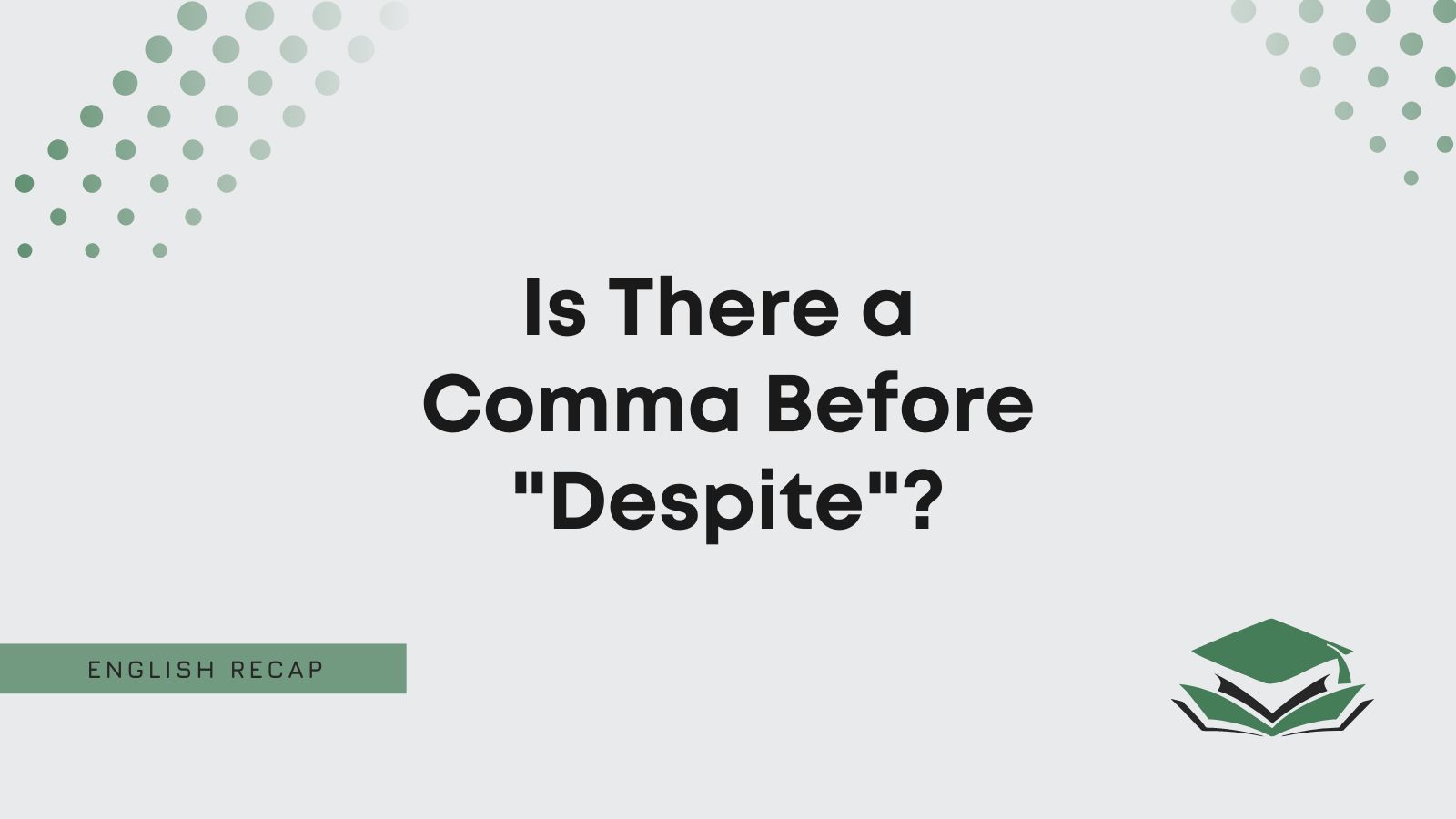Rule 1: Use a comma before “despite” if it is the first word of a non-essential part of the sentence.
- Correct: The hotel, despite the price, was quite reasonable.
- Incorrect: The hotel despite the price was quite reasonable.
Rule 2: You can choose whether to insert a comma or not when “despite” is in a dependent clause.
- Correct: He will not do anything useful with his life, despite all the opportunities.
- Correct: He will not do anything useful with his life despite all the opportunities.
Rule 3: You don’t need to put a comma before “despite” whenever it is not part of a non-essential clause.
Although, you can put a comma if you wish to break the flow of the sentence.
- Correct: He went out with his friends despite the fact that he was sick.
- Correct: He went out with his friends, despite the fact that he was sick.
In the rest of the article, you can discover more about the comma rules concerning the word “despite.”
When to Use a Comma Before “Despite”
Please see rules 1 and 2 when deciding whether you need a comma before “despite.”
Rule 1: Use a comma before “despite” when it starts a non-essential part of a sentence.
In these cases, the information contained in commas can be removed, and the sentence still sounds correct.
- The flight to New York, despite the turbulence, was quite pleasant.
- The hotel room, despite the broken shower, was acceptable for the price.
In these examples, it is better to change the word order to:
- Despite the turbulence, the flight to New York was quite pleasant.
- Despite the broken shower, the hotel room was acceptable for the price.
Rule 2: Use a comma before “despite” when it is the first word in a dependent clause.
Please be aware that it is optional to insert a comma, and you can mostly do without it.
However, it can help break sentences or indicate contrast or a shift in events.
- He told her he loved her, despite his actions saying otherwise.
- They went ahead with the trip, despite the dangers.
When to Avoid a Comma Before “Despite”
Rule 3 explains when you should avoid using a comma before “despite.”
Rule 3: You shouldn’t use a comma before “despite” unless it is the first word in a non-essential clause.
Because “despite” is a preposition, you generally do not need to put a comma before it.
You can use a comma when it is in a dependent clause, but it is not essential.
- They went to an Indian restaurant despite not liking spicy food.
- She set off on her own despite having little knowledge of the local area.
- The mission departed on time despite all the difficulties.
Conclusion
“Despite” generally does not require a comma. The only time it does is when it starts a non-defining clause. E.g., “The car, despite the color, was good.” Using it when “despite” starts a dependent clause is optional. E.g., “They went out, despite the weather.”

